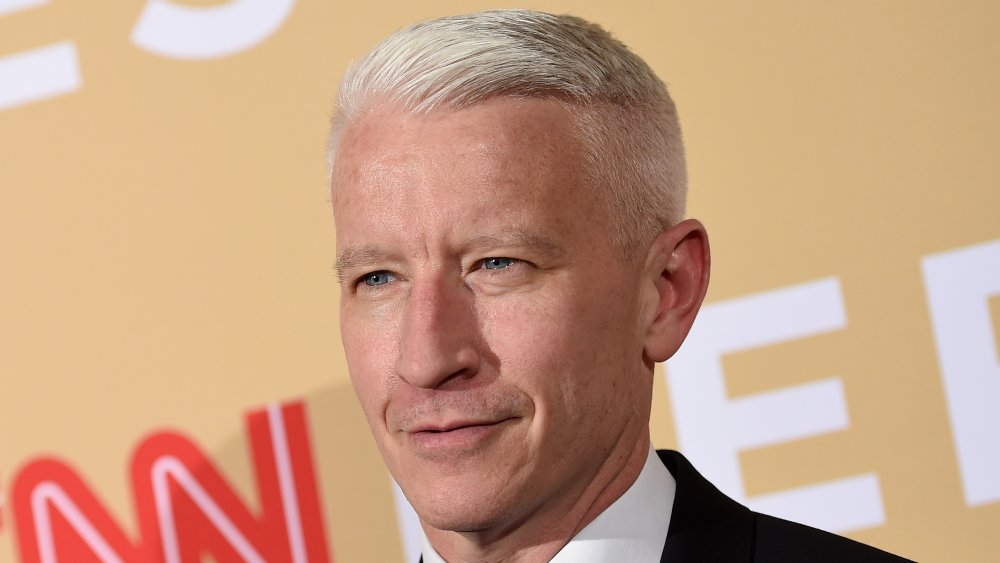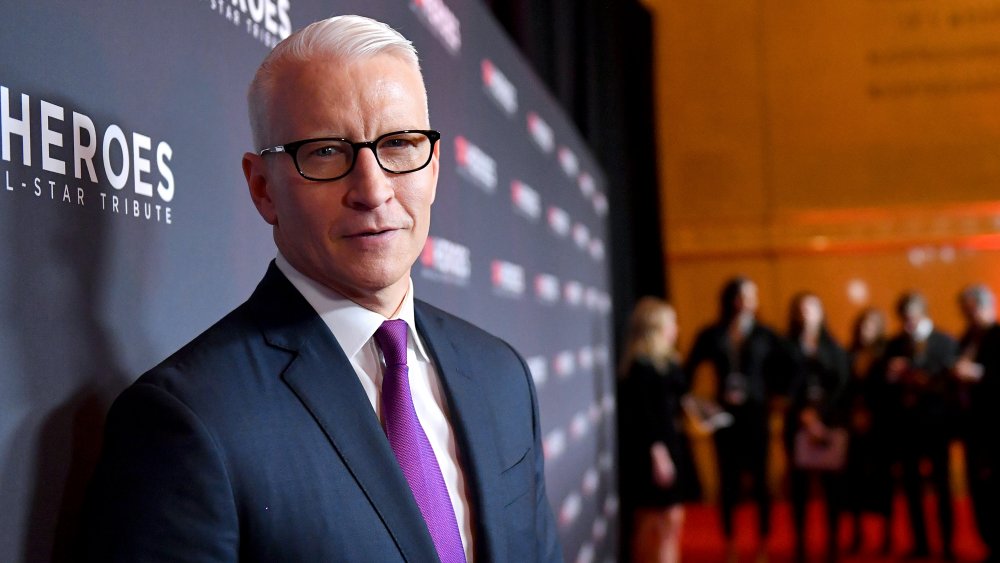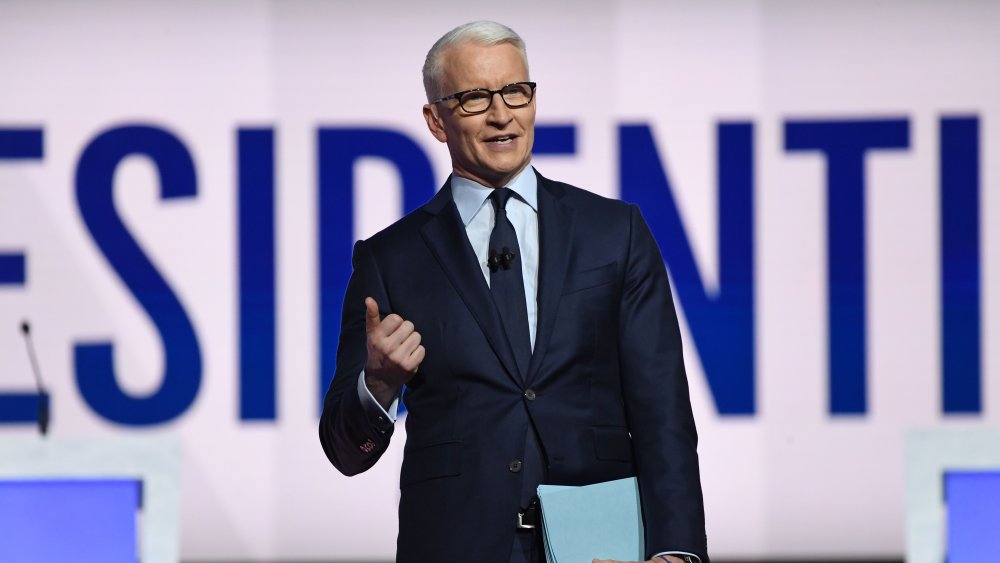The Untold Truth Of Anderson Cooper
Anderson Cooper officially became a father on April 27, 2020. He made an emotional announcement live on-air on CNN, when he introduced his newborn, Wyatt Morgan Cooper, to the world. Baby Wyatt is not only a milestone in Cooper's life, but he's also evidence of how far the LGBTQ+ community has come.
"As a gay kid, I never thought it would be possible to have a child," Cooper told viewers. "I'm so grateful for all those who paved the way, and for the doctors and nurses and everyone involved in my son's birth."
Considering the many uphill battles that Cooper has faced throughout his life, this new celebration of life amid a pandemic was heartwarming and a bit bittersweet. Cooper's father passed away when he was just 10 years old, and his brother died by suicide 10 years later (via New York Times). In 2019, Cooper's mother passed as well, per CNN.
"I do wish my mom and dad and my brother, Carter, were alive to meet Wyatt, but I like to believe they can see him," Cooper wrote on Instagram. He chose Wyatt's name as a tribute to his late parents, according to Insider.
Over the years, Cooper has shared many other personal experiences with the public, including his sexuality and his relationships. Per Los Angeles Times, he came out as gay in 2012.
But there's something else about Cooper that has gone under the radar for a while: the award-winning journalist had a learning disorder as a child.
Anderson Cooper had a common learning disorder
As a child, Anderson Cooper was diagnosed with dyslexia, a learning disorder that is marked by a difficulty with reading and word pronunciation. Dyslexia impacts about 20 percent of the population and is the most common neurocognitive disorder, according to The Yale Center for Dyslexia & Creativity. While there is no known cure for dyslexia, per Mayo Clinic, early interventions and educational techniques can often help.
It seems that's what helped Cooper. He recalled his experience growing up with dyslexia for Oprah. "As a child, I had a problem reading," Cooper explained. "I had a mild form of dyslexia where I would see some letters backward, and I had to go to a special reading instructor. One way she helped was to encourage me to find books that I was really passionate about."
"I feel very lucky for her coaching," he added. "Some people grow up in homes where sports are important; I grew up in a home where reading and writing had great value."
In a 2010 speech for The National Center for Learning Disabilities, Cooper explained the importance of early interventions for children like him. "To a child with a learning disability, school can be an incredibly isolating place," Cooper said. "The good news is that there are great schools out there, able to provide the necessary resources and support."
His dyslexia played a part in his career
Anderson Cooper's experiences with dyslexia led him to unlock a whole new perspective on life, which later guided his career. With the encouragement of his reading instructor, he started reading books like Helen Keller's biography and Heart of Darkness by Joseph Conrad.
"That novel, in particular, sparked an interest in seeing what happens to society when everything is stripped away, when you're living without the niceties of modern culture," Cooper told Oprah.
"I don't think it's an accident that I became a war correspondent," he added. "I'm interested in stories of survival: how some people make it through desperate times and others don't." In conflict zones, he added, "You learn that people are capable of horrific brutality but also great kindness. You see things straight out of Conrad — and how a novel from the 1890s still resonates today."
The CNN news anchor has since gone on to win multiple Emmys for his talent as a journalist.



